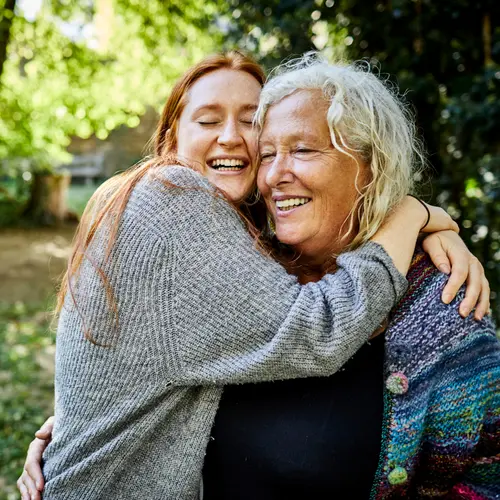The numbers related to opioid dependence and addiction are staggering: More than 10 million people misuse opioids and almost 50,000 people die from opioid overdose every year -- a 519% increase since 1999.
For those struggling with the effects of the addictive drugs, clinical trials could help prevent opioid misuse and develop effective treatments for those struggling with opioid misuse or addiction.
What Is a Clinical Trial?
Clinical trials are research studies that evaluate the effectiveness of new treatments, find the right medication dosages, look for side effects, and decide whether the treatments being tested are safe and effective. Researchers must present their clinical trial proposal to the FDA to get approval to do the studies.
How Have Past Clinical Trials Helped?
The opioid epidemic has led to considerable research into addressing opioid dependence and addiction and clinical trials are considered the gold standard for evaluating the effectiveness of various interventions.
In the 1960s, clinical trials helped researchers understand that methadone helped those with opioid addiction control drug cravings without creating a euphoric effect or a “high” similar to drug use. The results of these clinical trials led to the FDA approving methadone as a treatment for opiate addiction in 1972.
More recently, researchers have studied a range of drugs to reduce withdrawal symptoms, treat opioid dependence, predict the potential for relapse, improve the odds of sticking to treatment, and even measure treatment satisfaction among those with opioid dependence.
Clinical studies have also helped researchers understand the best settings for providing treatment. In one clinical trial, those who received methadone treatments in a medical office had higher rates of program completion and treatment satisfaction than those who received treatment in methadone clinics.
The more information researchers can glean from clinical trials, the more prepared medical professionals can be to prevent and treat opioid use disorder and addiction.
What Kinds of Clinical Trials Are Happening Now?
Researchers are always launching new clinical trials to develop additional prevention and treatment strategies for opioid misuse, dependence, and addiction. Some current fields of research include motivational interviews, tailored messages, and educational resources to prevent teens from misusing opioids or developing opioid use disorders; launching an opioid telephone hotline to provide referrals and interventions to callers interested in getting help for their addiction; and how to prevent unsafe opioid prescribing.
Several additional clinical trials that are in progress include:
- The potential that cannabidiol, or CBD, with (or without) small amounts of tetrahydrocannabinol (THC), the cannabis compound that causes a “high,” could help reduce opioid use among those with opioid use disorder.
- An experimental vaccine that would prevent oxycodone from getting into the brain and causing a “high” and protect against death from overdose.
- Using psychedelics like psilocybin (magic mushrooms) to treat opioid use disorder.
New clinical trials are recruiting participants all the time.
How Do I Get Involved in a Clinical Trial?
Ask your health care provider about opportunities to join clinical trials or search ClinicalTrials.gov, a database maintained by the U.S. Library of Medicine that lists clinical trials for a range of health conditions, including opioid use disorder, opioid dependence, and opioid addiction, that are recruiting participants.
After finding a clinical trial that you’d like to join, contact the coordinator to get more information about the qualification requirements, which can include age, gender, race, family history, and details related to your opioid use. Researchers will use the information from the initial screening to decide whether to enroll you in the clinical trial.
Talk to your doctor about your plans to take part in a clinical trial; health care providers often want to coordinate with the research team to make sure the study is safe for your health.
What Can I Expect From Participating in a Clinical Trial?
While clinical trials for opioid use disorder, opioid dependence, and opioid addiction are designed to test a range of treatments or prevention strategies, all will follow similar steps. You’ll be randomly assigned to a treatment or control group. Then you’ll be given a list of instructions to follow and asked to schedule follow-up appointments during the trial, which could include providing urine samples, blood draws, and other health screenings so researchers can collect data.
Some clinical trials will provide reimbursement for costs like travel, parking, and lodging that are required to participate or offer a small stipend to participants. In some cases, insurance will cover the costs not covered by the research trial but you should ask the clinical trial coordinator about potential out-of-pocket costs.
Researchers may decide to end a clinical trial early if there is a lack of interest, participants experience severe side effects, the harms are greater than the benefits, or other similar research is published that makes the clinical trial irrelevant.
Once the trial ends, researchers will look at the data gathered from all of the participants and formulate their results. Ask researchers how you can find out about the results of the clinical trial.
Thanks to clinical trials (and those who participate), researchers have more information about the best way to address opioid misuse. Their knowledge of opioid use disorder, dependence, and addiction will expand as more clinical trials are launched in the future.

